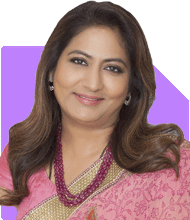Ramalingam Kalirajan |6999 Answers |Ask -Follow
Mutual Funds, Financial Planning Expert - Answered on May 16, 2024
He has an MBA in finance from the University of Madras and is a certified financial planner.
He is the director and chief financial planner at Holistic Investment, a Chennai-based firm that offers financial planning and wealth management advice.... more

I need to invest 1 crore for 15 years. Should i break it into fd, sbg and mutual funds?
Understanding Your Needs:
Before diving into investment strategies, it's essential to understand your financial goals, risk tolerance, and time horizon. As a Certified Financial Planner, I'm here to guide you through this process.
Assessing Investment Options:
Fixed Deposits (FDs):
FDs offer stability and predictable returns, making them an attractive option for conservative investors. However, their returns may not outpace inflation, impacting your purchasing power over time.
Savings Bank Gold (SBG):
SBG combines the convenience of a savings account with the potential for higher returns through investments in gold. While it offers liquidity and diversification, its returns may vary based on gold prices.
Mutual Funds:
Mutual funds provide diversification across various asset classes and are managed by professionals. Actively managed funds have the potential to outperform the market, although they come with higher fees compared to passive options.
Analyzing the Approach:
Breaking down your investment into FDs, SBG, and mutual funds can offer a balanced approach. Allocating a portion to FDs ensures stability, while SBG adds diversification. Mutual funds, particularly actively managed ones, can potentially boost returns over the long term.
Evaluating Disadvantages:
Index Funds and Direct Funds:
Index funds, while low-cost, may limit potential returns as they aim to mirror market performance. Direct funds lack professional guidance and may result in suboptimal investment decisions.
Highlighting Benefits:
Actively Managed Funds:
Choosing actively managed mutual funds allows you to benefit from the expertise of fund managers who actively research and select investments, aiming to outperform the market. Additionally, investing through a Certified Financial Planner ensures personalized advice tailored to your financial goals.
Best Regards,
K. Ramalingam, MBA, CFP,
Chief Financial Planner,
www.holisticinvestment.in
You may like to see similar questions and answers below
Ramalingam Kalirajan |6999 Answers |Ask -Follow
Mutual Funds, Financial Planning Expert - Answered on May 26, 2024
Ramalingam Kalirajan |6999 Answers |Ask -Follow
Mutual Funds, Financial Planning Expert - Answered on Apr 05, 2024
Ramalingam Kalirajan |6999 Answers |Ask -Follow
Mutual Funds, Financial Planning Expert - Answered on May 21, 2024
Milind Vadjikar |599 Answers |Ask -Follow
Insurance, Stocks, MF, PF Expert - Answered on Sep 28, 2024
Ramalingam Kalirajan |6999 Answers |Ask -Follow
Mutual Funds, Financial Planning Expert - Answered on Nov 09, 2024
Milind Vadjikar |599 Answers |Ask -Follow
Insurance, Stocks, MF, PF Expert - Answered on Nov 09, 2024
Dr Nandita Palshetkar |5 Answers |Ask -Follow
Gynaecologist, IVF expert - Answered on Nov 09, 2024
Prof Suvasish Mukhopadhyay |36 Answers |Ask -Follow
Career Counsellor - Answered on Nov 09, 2024
Prof Suvasish Mukhopadhyay |36 Answers |Ask -Follow
Career Counsellor - Answered on Nov 09, 2024
Prof Suvasish Mukhopadhyay |36 Answers |Ask -Follow
Career Counsellor - Answered on Nov 09, 2024
Prof Suvasish Mukhopadhyay |36 Answers |Ask -Follow
Career Counsellor - Answered on Nov 09, 2024
Prof Suvasish Mukhopadhyay |36 Answers |Ask -Follow
Career Counsellor - Answered on Nov 09, 2024
Prof Suvasish Mukhopadhyay |36 Answers |Ask -Follow
Career Counsellor - Answered on Nov 09, 2024
Prof Suvasish Mukhopadhyay |36 Answers |Ask -Follow
Career Counsellor - Answered on Nov 09, 2024





















